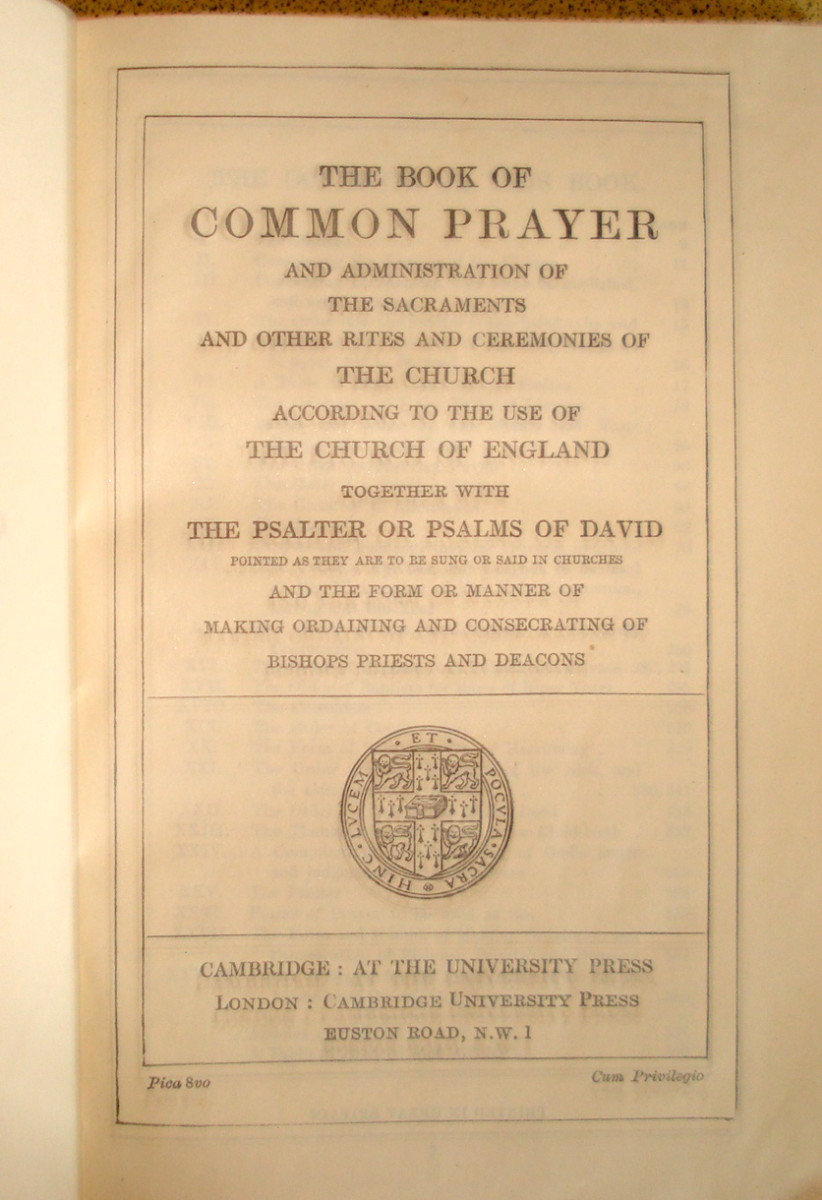Hermeneutics (How to interpret the Bible)

Why I'm making this page on Hermeneutics (interpreting the Bible)
I'm making this page on Hermeneutics or "How to Interpret the Bible" because many people today don't really know how to Interpret the Bible, and as a Seminary graduate (see my bio in the sidebar), I feel I can add something of value. So, you will be getting the benefit of my 7 years of Bible training (4 years Bible college and 3 years Seminary.)
On the one hand, since the Bible is God's message to us, it should not be difficult for the average person to interpret--and besides, He's given us His Holy Spirit to help (See my module on "The Role of The Holy Spirit" below).
On the other hand the Bible was written thousands of years ago and thus, there is a gap of culture and language between us and the Biblical writers.
One can read the Bible and receive much in the way of inspiration and instruction. (See my other hub, "God's Success Principles.")
Yet, when it comes to really understanding and interpreting a particular verse or passage, one needs to apply certain principles of interpretation or as they are known technically, "Hermeneutics" (from the Greek God of interpretation, Hermes), Seminaries offer whole courses in Hermeneutics, otherwise defined as the art and science of Bible interpretation. All I can do here is to list the major principles of interpretation along with some specialty areas of the Bible which deserve special treatment, and refer you to some tools which you will certainly need in order to interpret the Bible for yourself.
But first, let me offer a few defining thoughts on the nature Hermeneutics. The presupposition of Hermeneutics is Biblical inspiration, The goal of hermeneutics is to provide the means for discovering what God said to us in His Word and what it means to us. The task of hermeneutics, thus, is two-fold: (1) to bridge the gap between our minds and the minds of the Biblical writers and the people of the times in which they wrote, and (2) to determine what else, if anything, God was trying to convey to us, His Church. Thus, the tools of hermeneutics include linguistics, history, culture, context, comparison, sanctified imagination and the leading of the Holy Spirit.
1. Context
The first principle of Biblical interpretation is context. It is the idea that you can't take one verse and build a doctrine on it without examining what surrounds it. The term "context" refers to all the material surrounding the verse in question. As someone said a text without a context is a pretext.
To properly interpret any verse of Holy scripture, we must examine it in the light of an ever expanding circle of context. First we must notice the immediate context, that is the verses immediately preceding and following our verse. Then we must notice the near immediate context, a wider area. Then we must notice the chapter context, that is the context of the particular chapter in which our verse appears. Then we must notice the book context, that is we must deteremine how our verse fits into the particular book of scripture in which it appears. Then we must notice the section context--that is, how does our verse fit in the particular section of the testiment in which it appears. Then we must see how it fits into the particular testiment (old or new) and then how it fits into the whole Bible.
This process may take some creative thinking but it will be well worth it.
2. history and Culture
Although the Biblical writers were Divinely inspired (II Tim.3:16), they were still products of their time and culture. Thus, in addition to language, it is also important to understand the historical background of a particular passage and the cultural differences which may have existed between our time and that of the Biblical writers. Josephus was a historian who wrote in detail about the history of both old and new testament times, so if you want to wade through his rhetoric, you can find some historical gems in his writings, The cultures of the Old and New Testament times were not that different from one another, since the times were close together, but they are quite different from our own, since we are separated from them by thousands of years. Culture includes all aspects of the way of life of a people, including their art, their music their customs and their habits. So, you see, culture takes in a wide area, and relates to the everyday life of the people living then.
3. Language.
The second thing we need to consider in interpreting a verse of scripture is the language it was originally written in. The Old Testament was written in Hebrew and the New Testament was written in Coine Greek. There are vast differences between these ancient languages and our modern English, both in semantics (word meanings) and grammar (word usage). With regard to the former, the Greek language of the New Testament is more specific, with many different words for one of our English words, each word delineating a different shade of meaning. The Hebrew language of the Old Testament, on the other hand is much broader in its word meaning with one word carrying a wide range of meanings. The word usage or grammar is also different but this is a subject for separate study. So to bridge the gap between our minds and the minds of the writers we either have to study the original languages or make use of some tools which can help us to better understand the original meanings
3.(continued) Language tools:
-Of course a familiarity with the original languages is best, but, In Leu of taking courses in Hebrew and Greek, there are several tools which the English reader can use to ascertain the meaning of a particular Hebrew or Greek word.
Here is one of the best tools you can use to help bridge the language barrier: This tool is GREAT not only for finding a scripture passage if you can only remember a few words from the passage, but also if your want to compare how a certain word is used in different places in the Bible. First, look up the English word. Under the headword are three columns: the first with the book and verse number, the second with a brief excerpt from the verse, the third with a four-digit number. The number stands for the Hebrew or Greek word which was translated by the English word. In the back of your concordance are very short Hebrew and Greek dictionaries; if the verse is in the Old Testament, look it up in the Hebrew dictionary; if the verse is in the New Testament, look it up in the Greek one.
4. Speciality areas
Although much of the Bible can be understood and interpreted by applying the three principles of context, language and culture, because the Bible is compilation of many books with different styles and from different genres, there are several specialty areas which have their own rules of interpretation. The main specialty areas are parables, poetry, prophecy, and typology, Numerology is rightfully a part of typology. You may want to check out the resources available in each of these areas below:
4a. First Speciality area: Parables
Jesus told many parables during His earthly ministry. A parable is an earthly story with a heavenly meaning. These have their own rules of interpretation. For example, one rule which we learned in seminary is that can't make a parable "stand on all 4's" or in other words, you can't make every little thing in a parable stand for something, since parables are generally meant to convey one main point or spiritual lesson. For more on interpreting parables, check out this resource listed below. It gives a complete range of modern approaches to interpreting the parables.
4b. Second specialty: Poetry
The psalms and other portions of the old testament are written in poetry, which has it's own rules of interpretation. For example, Hebrew poetry is famous for its parallelisms (one line saying the same thing as the former line but with different emphases, or saying the opposite or antithesis of the first line.) There are several types of parallelism in Hebrew poetry. For more, check out the resource listed below or other books on the subject: The one below " is most helpful in understanding Hebrew poetry beyond the notion of parallelism. It discusses grammatic and semantic parallelism, which are helpful in getting a deeper understanding of Hebrew poetry."
-----Jakob K. Heckert (2007)[an Amazon review]
4c. Third speciality area: Prophecy
Bible Prophecy is another specialty area which carries it's own rules of interpretation. The Old Testament prophets looked forward to both of the comings of Christ (His first coming as baby and his still future second coming) but the saw these as two mountain peaks without seeing the valley of our time in between. Of course the book of Revelation also carries its own prophecy rules.
4d. Fourth speciality area: Typology
Typology is the study of Biblical types and is a whole area of study by itself, although in one sense typology could be considered to fall under the heading of prophecy, since a type could be considered to be a physical prophecy. A type is a literal person place or object in the Old testament which pictures something spiritual in the New Testament [the anti-type])
Typology is a legitamate and ueseful means of interpreting the Old Testament, as uese and endorsed by the Apostle Paul in several places, especially, I Corinthians Chapter 10. I Galatians 3, Paul evey uses allegory. Allegory could be included with typology, as an allegory simply an extened type. The resource listed below, "Biblical Typology, " gives an excellent overview on the right and wrong way to gain knowledge from the viewpoint of biblical typology. [It] develops a moderate yet scriptural position regarding scriptural types." (--Biblical Studies)
4e.-Fifth specialty area: Numerology - The meanings of numbers in the Bible
Actually, by rights, this should also fall under the general heading of typology, but some have made it a separate study of its own. I feel it must be linked to typology as the numbers in the old testament looking forward to and representing spiritual truth in the new. For example the number 7 is the perfect number representing prefection or completion, so the fact that the priests had to undergo a consecration that lasted for seven days speaks of the pefect consecration of Christ as our great high priest.
It is my opinion that numerology should only be applied to the old testament as part of typology, and perhaps that's what the 2 volume book below does.:
5.The law of first mention:
Another important hermeneutical principle is the law of first mention. Simply stated it is the princxiple that the first mention or occurrence of anything in the Bible is of great weight and import in that it has in it the seeds of future occurrences. Some would even say that the first time something is mentioned, it is mentioned with it's fullest possible meaning and thus serves as a basis for understanding later occurrences of it.
For more on this principle, go Here.
The Role of The Holy Spirit
By now, some of you are probably thinking, "--but I thought the Holy Spirit would teach us." Yes, but the Holy Spirit doesn't work in a vacuum. He will use your God given mind and your dilligent study and application of these principles and tools and put them together in ways that may surprise you. The Holy Spirit will shed illumination upon your dilligent study of the word but, since the cannon of scripture is closed, he does not any longer give direct revelation of truth. Thus He will not immedately zap you with an interpretation. Yet, it is a good idea to pray before you begin your study and even during your study. It is also a good idea to check your conclusions with other Bible scholars from the past by the use of commentaries.










